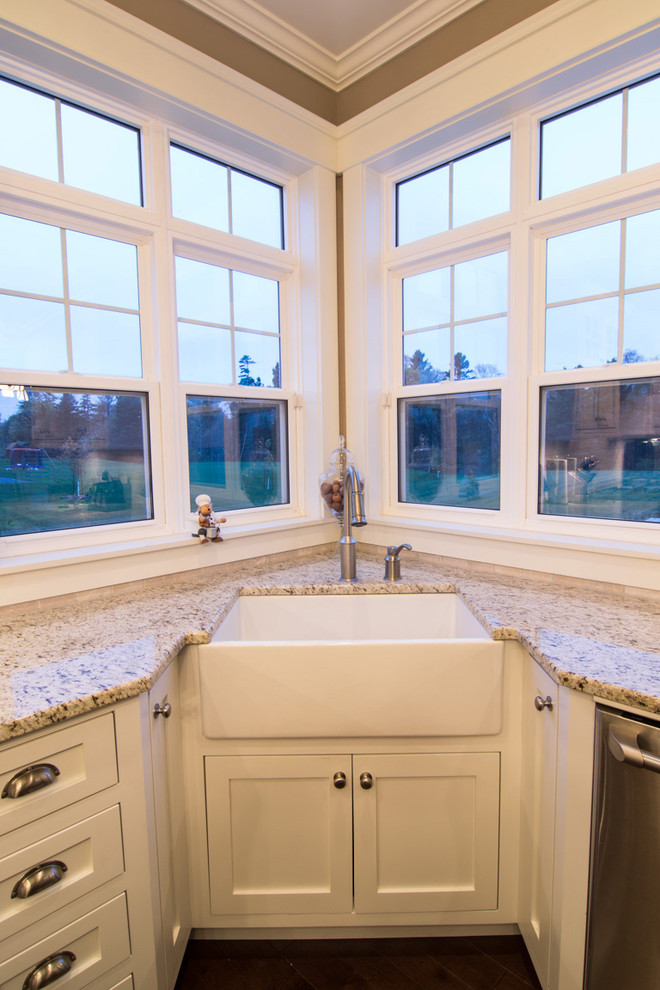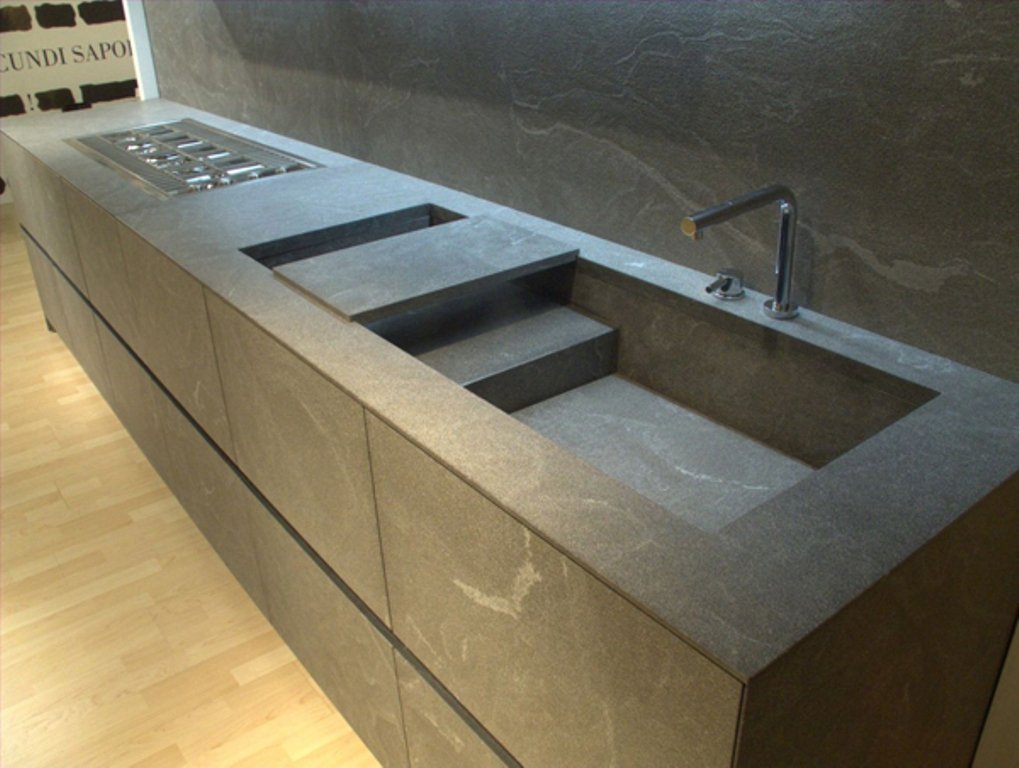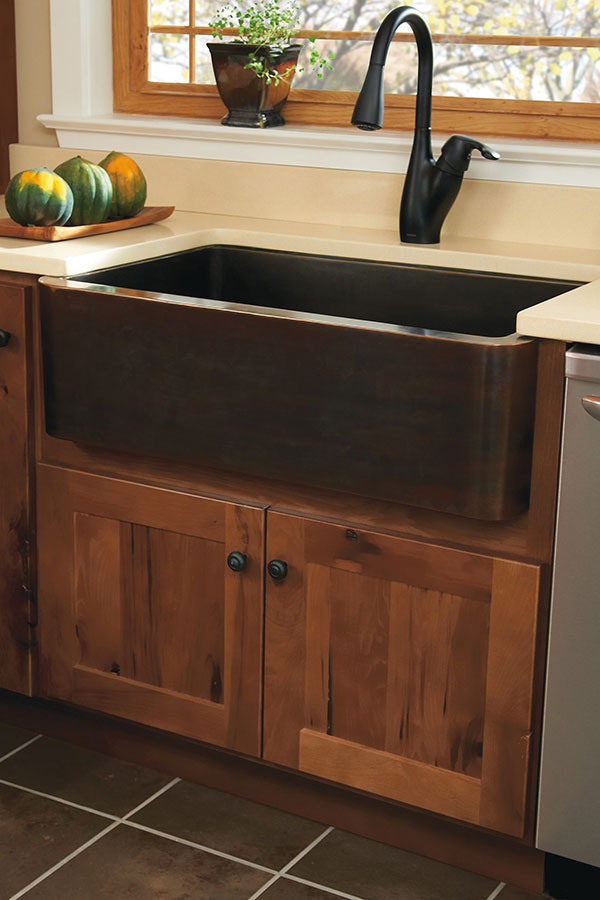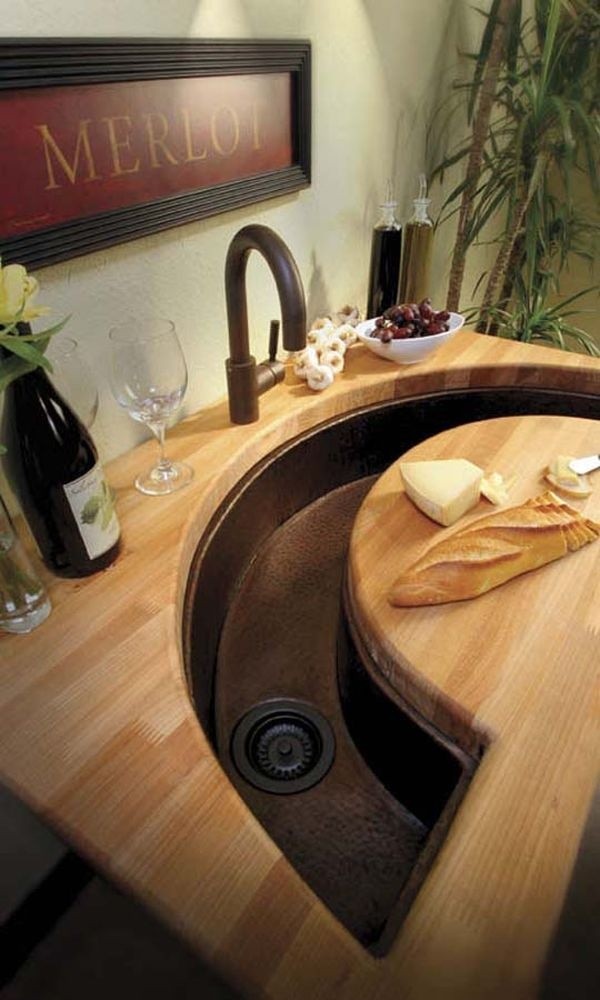Embracing Rustic Elegance
Farm sink kitchen design, also known as farmhouse sink or apron front sink, has become increasingly popular in modern kitchens for its charming aesthetic and functional benefits. Inspired by traditional farmhouse kitchens, this design features a large, deep sink with a distinctive front panel that extends beyond the edge of the countertop. In this comprehensive guide, we’ll discuss the elements of farm sink kitchen design, explore its advantages, discuss installation considerations, and offer tips for incorporating this timeless style into your kitchen.

Elements of Farm Sink Kitchen Design
The hallmark of the farm sink kitchen design is the apron front sink, which serves as the focal point of the kitchen. These sinks are typically deeper and wider than standard sinks, providing ample space for washing dishes, pots, and pans. The front panel, or apron, extends outward and is often adorned with intricate designs or simple, clean lines, adding to the sink’s visual appeal.
In addition to the apron front sink, other elements commonly found in farm sink kitchen design include:
Cabinetry: Farm sink kitchens often feature custom cabinetry designed to accommodate the large size of the sink. The cabinetry may include open shelving, glass-fronted cabinets, or decorative molding to enhance the farmhouse aesthetic.
Countertops: Natural materials such as wood, stone, or butcher block countertops complement the rustic charm of farm sink kitchen design. These countertops provide a warm and inviting backdrop for the sink and other kitchen elements.
Hardware: Traditional farmhouse kitchens often feature vintage-inspired hardware such as brass or wrought iron drawer pulls and cabinet knobs. These details add character and authenticity to the space.
Accessories: Accessories such as farmhouse-style faucets, pendant lighting, and decorative accents like ceramic jars or woven baskets contribute to the overall farmhouse aesthetic of the kitchen.

Advantages of Farm Sink Kitchen Design
Farm sink kitchen design offers several advantages, both in terms of functionality and aesthetics. Some of the key benefits include:
Deep Basin: The deep basin of a farm sink provides ample space for washing large pots and pans, making it ideal for home cooks and busy families.
Visual Impact: The apron front sink serves as a striking focal point in the kitchen, adding character and charm to the space.
Versatility: Farm sink kitchen design complements a variety of design styles, from rustic farmhouse to modern industrial, making it a versatile choice for any kitchen remodel.
Durability: Farm sinks are typically made from durable materials such as fireclay, cast iron, or stainless steel, ensuring long-lasting performance and easy maintenance.

Installation Considerations
Before incorporating a farm sink into your kitchen design, there are several installation considerations to keep in mind:
Cabinet Size: Farm sinks require custom cabinetry to support their weight and size. Be sure to measure the dimensions of your sink carefully and consult with a professional cabinetmaker to ensure a proper fit.
Support Structure: Depending on the material and weight of the sink, additional support may be required underneath the sink cabinet to prevent sagging or damage over time.
Plumbing: Farm sinks may require adjustments to the plumbing configuration to accommodate their larger size and unique design. Consult with a licensed plumber to ensure proper installation.
Countertop Overhang: The front panel of the sink, or apron, typically extends beyond the edge of the countertop. Be sure to factor in the overhang when measuring and planning your countertop installation.

Tips for Incorporating Farm Sink Kitchen Design
Here are some tips for incorporating farm sink kitchen design into your home:
Choose the Right Material: Farm sinks are available in a variety of materials, including fireclay, cast iron, stainless steel, and copper. Consider your design preferences, maintenance requirements, and budget when selecting the material for your sink.
Coordinate with Cabinetry: Choose cabinetry that complements the farmhouse aesthetic of the sink. Consider open shelving, glass-fronted cabinets, or decorative molding to enhance the overall look of the kitchen.
Accessorize Thoughtfully: Enhance the farmhouse vibe of your kitchen with vintage-inspired hardware, farmhouse-style faucets, pendant lighting, and decorative accents such as ceramic jars or woven baskets.
Create Contrast: Incorporate contrasting elements such as dark wood or matte black fixtures to add depth and visual interest to your farm sink kitchen design.

Common Mistakes to Avoid
When designing a farm sink kitchen, it’s important to avoid common mistakes that can detract from the overall aesthetic and functionality of the space:
Choosing the Wrong Size Sink: Selecting a farm sink that is too large or too small for your kitchen can throw off the balance of the space and make it difficult to work efficiently.
Neglecting Proper Support: Failing to provide adequate support for the farm sink can lead to sagging or damage to the cabinet structure over time. Be sure to consult with a professional to ensure proper installation and support.
Forgetting About Maintenance: Farm sinks require regular maintenance to keep them looking their best. Neglecting proper care and cleaning can result in stains, scratches, and other damage to the sink’s surface.
Overlooking Plumbing Considerations: Farm sinks may require adjustments to the plumbing configuration to accommodate their larger size and unique design. Be sure to consult with a licensed plumber to ensure proper installation and functionality.

Are farm sinks practical for everyday use?
Yes, farm sinks are practical for everyday use and are particularly well-suited for busy kitchens and home cooks who frequently wash large pots and pans.
Can I install a farm sink in an existing kitchen?
Yes, farm sinks can be installed in existing kitchens with proper planning and modifications to the cabinetry and plumbing. Consult with a professional to ensure proper installation.
Are farm sinks difficult to clean?
Farm sinks are relatively easy to clean and maintain, especially if they are made from durable materials such as fireclay or stainless steel. Regular cleaning with mild soap and water is typically all that’s needed to keep them looking their best.
What size farm sink should I choose for my kitchen?
The size of the farm sink you choose will depend on the dimensions of your kitchen and your personal preferences. Consider the size of your cabinets, countertop space, and how you plan to use the sink when selecting the appropriate size.
Are farm sinks more expensive than traditional sinks?
Farm sinks can vary in price depending on factors such as material, size, and brand. While they may be more expensive than traditional sinks, many homeowners consider them a worthwhile investment due to their durability, functionality, and timeless appeal.

Creative & Modern Kitchen Sink Ideas Architecture & Design

Related Posts: